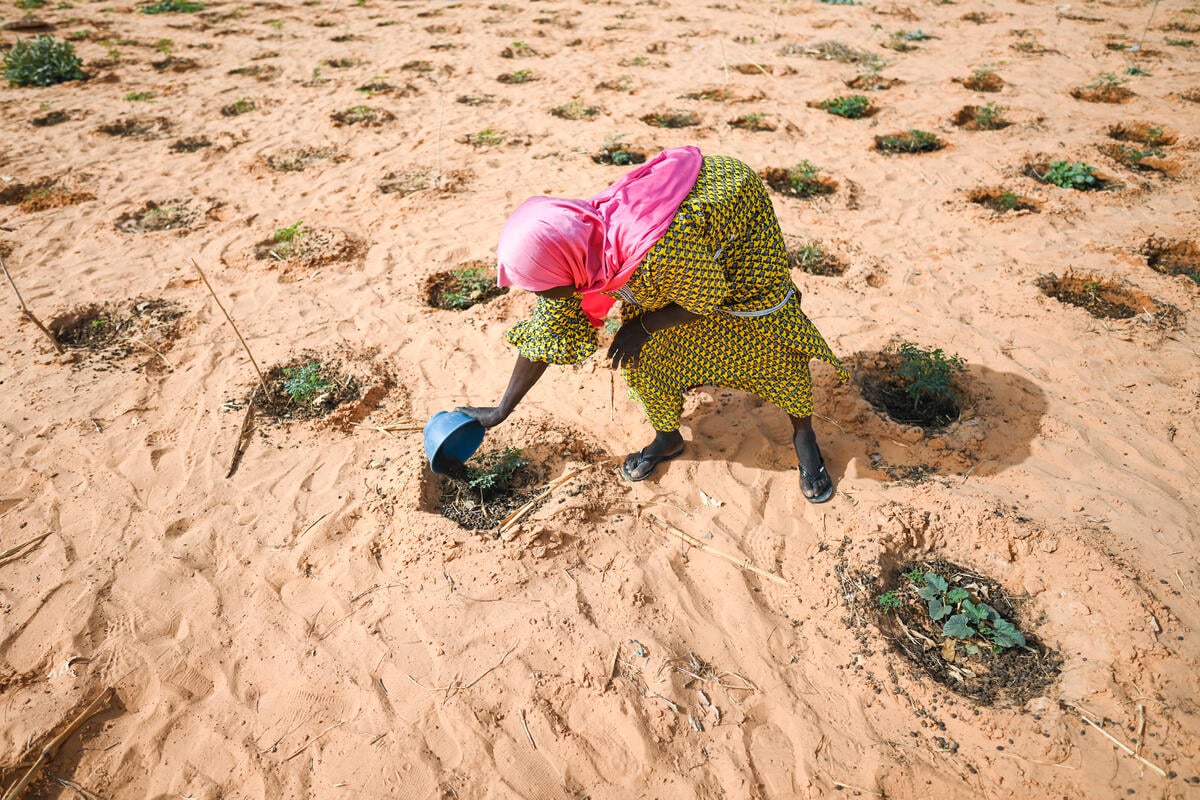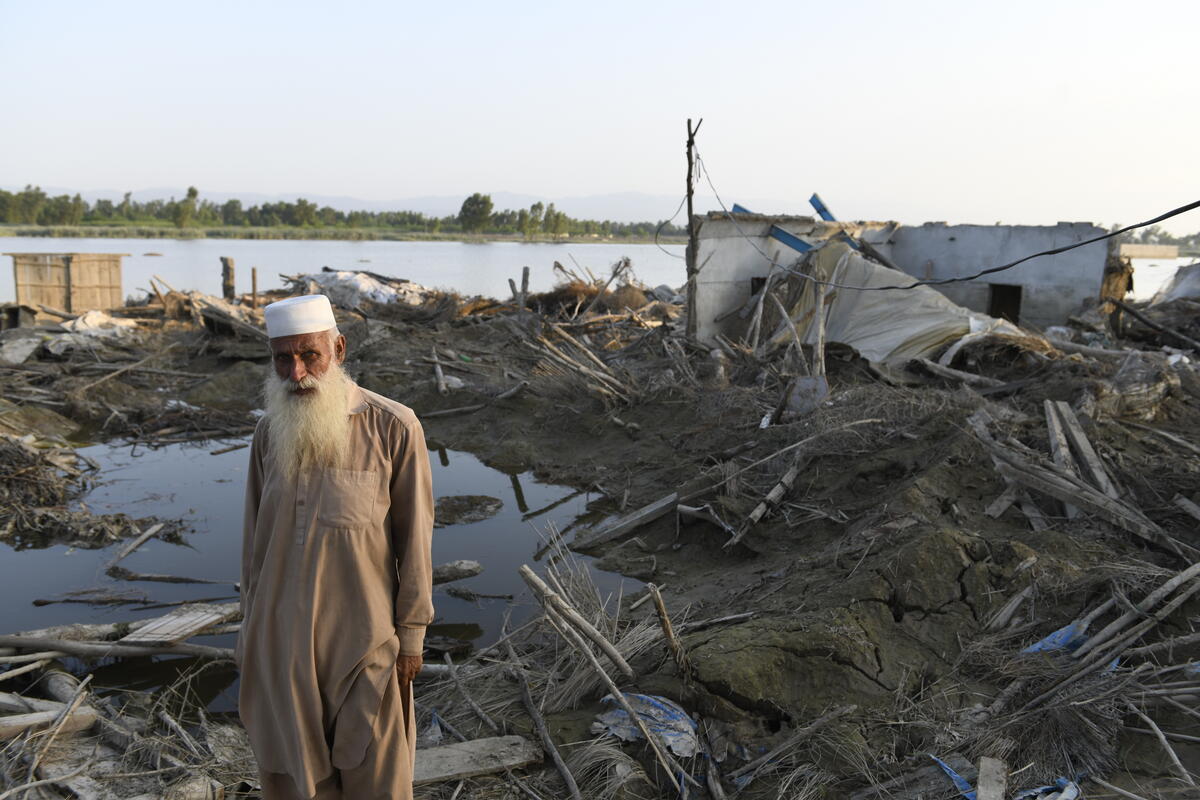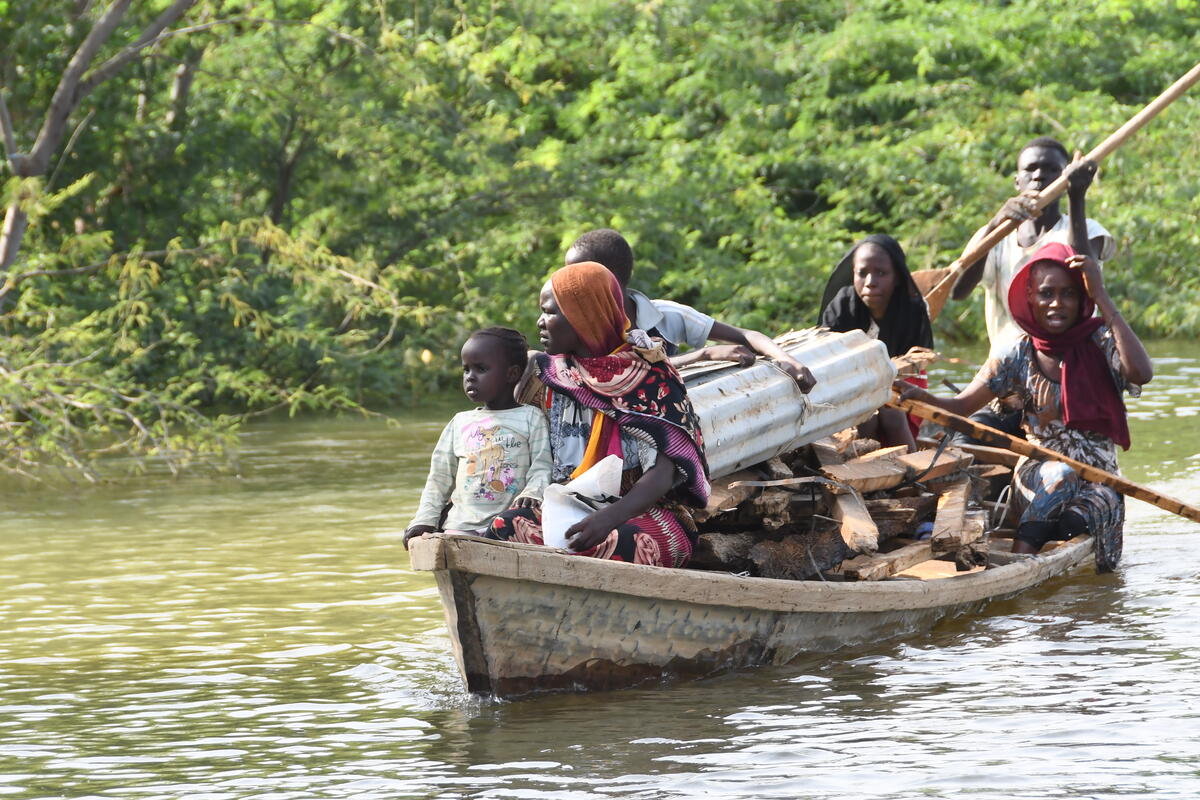Colombian tribespeople flee to Amazon town for safety
Colombian tribespeople flee to Amazon town for safety

LETICIA, Colombia, October 17 (UNHCR) - After an epic 16-day trek that took them down three rivers, across thick jungle and through a part of Brazil, a small group of scared Baro indigenous people arrived earlier this month in Leticia on the banks of the Amazon River.
Located on the border with Peru and Brazil, Leticia is Colombia's southernmost town. There are no roads in or out and the rivers provide the only link to the outside world. As a result of its isolation, the region has enjoyed relative peace from the armed conflict that has long affected other parts of Colombia.
When a UNHCR team met with the six Baro families here last week, they were still in shock after fleeing their homes last month when an irregular armed group entered their territory. Locals fear their arrival means that the violence has now reached Colombia's Amazonas department, which has largely been spared the kind of turmoil afflicting neighbouring Caqueta and Putumayo departments.
"Some of the children were quite sick and their parents did not want to get off the boat because they have no relations here and were scared," recounted Luis Alfonso Zabala, a Catholic priest who met the group on their arrival in Leticia.
Their ordeal did not end on arrival. Entitled by law to receive assistance as victims of forced displacement, the families were at first turned away when they went to register with the authorities because they had no identity documents. But people registering as displaced do not need to show ID.
For the time being, the group has been receiving assistance from the local church, which UNHCR has been supporting with advice and information.
"It is relatively common among indigenous people from remote parts of the country to have no identity documents, which makes them extremely vulnerable during forced displacement," noted UNHCR Deputy Representative in Colombia Roberto Mignone, who took part in last week's mission to Leticia.
For the past six years, UNHCR and the Colombian government have run a campaign to ensure documentation for people at high risk of displacement, with a focus on indigenous and Afro-Colombian communities. More than 600,000 Colombians have received identity documents since the start of the project.
In Leticia, the Baro families have found shelter in run-down neighbourhoods on the edge of town. Conditions are harsh, with many families living in cramped conditions and under plastic sheeting with no sanitation or running water.
Ironically, Amazonas department has a small population and plenty of space; just 75,000 people - more than a quarter of them indigenous and a third of them living in Leticia - spread over an area of more than 100,000 square kilometres.
But Leticia, surrounded by rivers and jungle, has limited room for expansion. "Lack of decent housing and of land on which to build is one of the biggest problems for displaced people here," said Jaime Gómez Cruz, representative of a local association for displaced people.
Traditionally organized in small family groups around the figure of a shaman, the Baro people are completely lost in Leticia. With no experience of living in an urban area, they are at risk of falling prey to the human trafficking, child exploitation and prostitution that characterize so many border towns.
Like many other indigenous groups, their identity relies on their strong links to the land they have lost. And now they are at risk of losing this identity too.
"This is why prevention [of displacement] is so important, because all the protection and assistance given after displacement can never replace such a loss," UNHCR's Mignone stressed.
With fewer than 700 members, the Baro tribe is one of the smallest of Colombia's 80 indigenous groups, of which 27 are classified as at risk of extinction because they have less than 500 members. Other indigenous peoples displaced to Leticia include members of the Huitoto, Kófan and Inga tribes.
Under Colombian and international law, members of indigenous groups are entitled to special protection from forced displacement. One of the priorities of UNHCR in Colombia is to support the state in its efforts to fulfil this obligation.
By Marie-Hélène Verney in Leticia, Colombia








